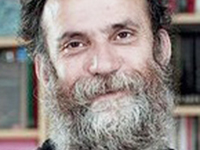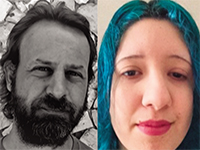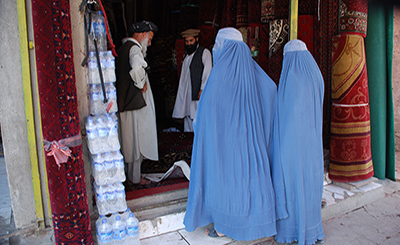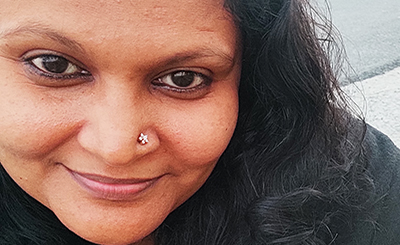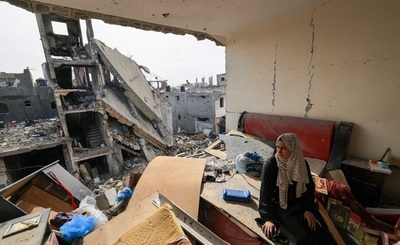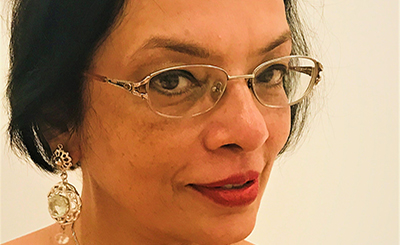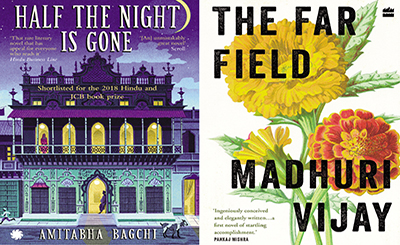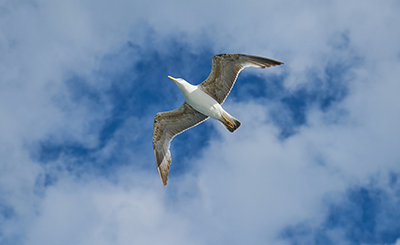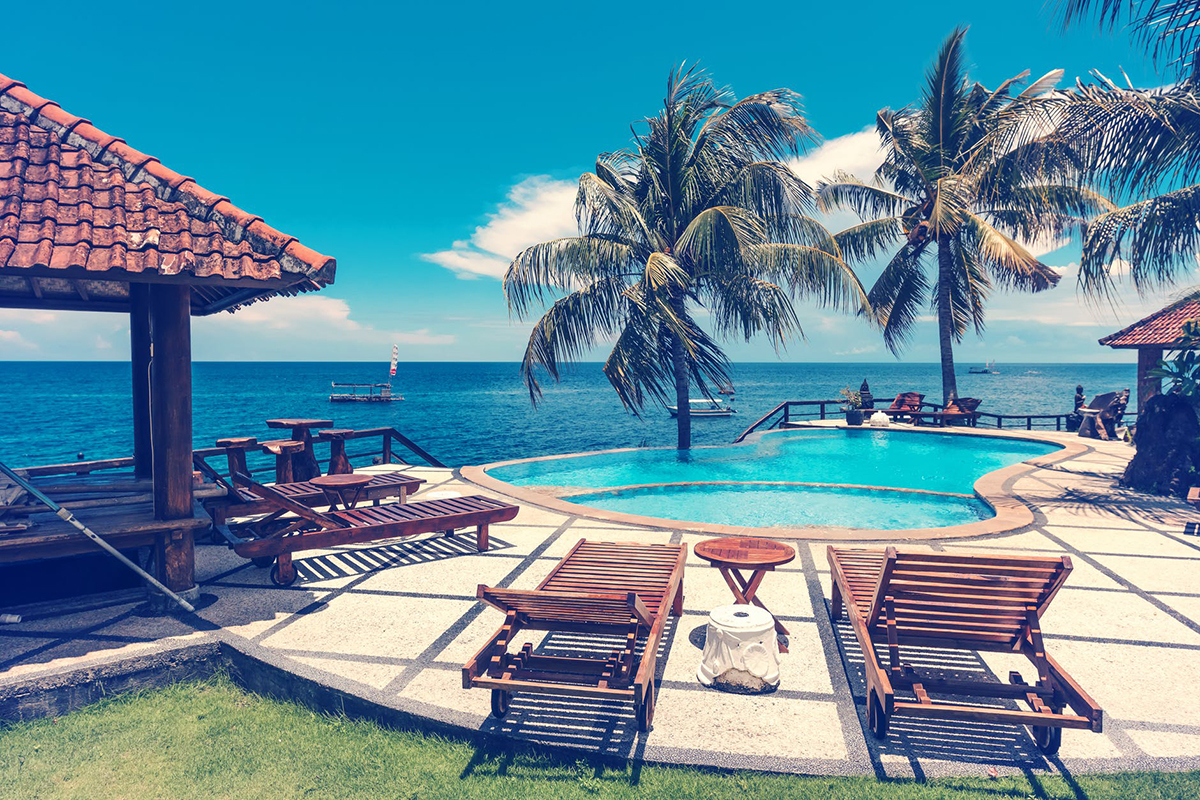
This poem is part of our world poetry special issue, with the focus on Turkey, curated by Ceyda Elgül, an instructor of translation at the Department of Translation and Interpreting Studies in Istanbul’s BoÄŸaziçi University
Editor's note: “No man is an island entire of itself/every man is a piece of the continent, a part of the main...” wrote John Donne, whose death anniversary falls on March 31. However, amid the shared threat of a global pandemic, as we practise social distancing and seek refuge in the self, we may see ourselves as islands unto ourselves, rafting along the sea of life. As reports of people dying of coronavirus around the world come in, all of us at The Punch Magazine feel diminished as we are “involved in mankind”.
COVID-19 destroys lives, but as human race, we have always created what is greater than us — literature. It’s a dark and difficult period in the march of human civilisation. But this is also the time that will produce the best of literature. “What one writer can make in the solitude of one room is something no power can easily destroy,” Salman Rushdie once said. Poets and writers throughout history have always shaped the world, and stopped it from “going to sleep”. Someday, when all this is over, the world may not be the same, and we may have lost millions of our loved ones to the contagion, but, by then, poets and writers who are witness to this moment in history will have created life-affirming literature that will outlive us. We do hope that this phase proves to be just a “short sleep” and that we may soon “wake eternally” and emerge into the light — stronger and well-healed.
This poem is part of our world poetry special issue, with a focus on Turkey, curated by Ceyda Elgül, an instructor of translation at Department of Translation and Interpreting Studies (DTIS), BoÄŸaziçi University in Bebek (Istanbul). It presents a selection of poems translated during a workshop in Turkey last year.
Curator’s Note: Poetry is generally associated with untranslatability. Poets are assumed to deconstruct and refashion the language, which eventually puts it in a state that cannot be replicated in another language. This portrayal would seemingly suggest that poems are “islands” that have no contact with “other shores”.
In July 2019, a group of professional poets, translators, and scholars from different linguistic and cultural backgrounds gathered at Büyükada, the largest of the nine “Princes’ Islands” in the Sea of Marmara, near Istanbul, to start a series of poetry translation workshops entitled “Island in Translation”. The gathering aimed to celebrate poetry translation as collaborative-creative production. A selection of island poets and/or poems with island themes was translated. The poets and the poems came from the Princes Islands (Istanbul), Cyprus, the Caribbean, and the Isle of Man. During the two-day workshop, the gathering delved into island literature from the viewpoint of translation and proposed corresponding images for island-poems in other languages, including English, Turkish, Korean, Kurdish, and Japanese. Metaphorically speaking, the group explored how “island-poems” and “other-shores” could be brought together.
Besides this poem by Turkish poet Haydar Ergülen (translated by Mark David Wyers and Ä°dil KaracadaÄŸ), other translations include poems by late Caribbean poet, playwright and theatre director Derek Walcott (translated by Özlem Berk Albachten); Turkish writer-stage director-theatre critic Melisa Gürpınar (translated by Ceyda Elgül); Turkish poet-essayist-novelist Enis Batur (translated by Saliha Paker); Sait Faik Abasıyanık, one of the major short story writers in Turkish literature in the 20th century (translated by Åžehnaz Tahir GürçaÄŸlar and Ä°ldar Gün GürçaÄŸlar); Isle of Man-based English teacher Usha Kishore (translated by Seyhan Bozkurt Jobanputra and Rakesh Jobanputra); Özdemir Asaf, an eminent figure of contemporary Turkish Literature (translated by Seyhan Bozkurt Jobanputra and Rakesh Jobanputra); American poet Mel Kenne (translated by Mark David Wyers, Ä°dil KaracadaÄŸ and Gökçenur Ç.); Turkish poet-actor-visual artist Erkut Tokman (translated by Mark David Wyers and Ceyda Elgül); Turkish-Cypriot poet Mehmet Yaşın (translated by Bilal Çelik and BaÅŸak Ergil); Turkish poet Muzaffer Tayyip Uslu (translated by Muazzez Uslu); and Turkish poets Efe Duyan, Nihat Özdal and ÇaÄŸla Meknuze (translated by Gökçenur ÇelebioÄŸlu). In respect of the long tradition of poetry translation, the translations are presented along with the source poems so as to enable parallel reading.
Were I Someone Else’s Island
Were I someone else’s island
I would say, loving too much is sad as well, and you fall
even farther than your shadow, death itself is a dark island,
and while a girl would spurn her tears, I would spurn separation
Everyone is somebody else’s island between death and separation
I would weep gazing at the teardrops meeting secretly
in a potter’s field like two exiles from the sea,
whoever’s pain I snuck into, I’d awaken, eyes filled with blue
An island; blue letters poised between two teardrops
between evening and the capsized paper boat of a childhood,
some words in the depths and its sorrow reflected in its face
an island, forgotten in the eyes of a girl, not the blue
Were I someone else’s island
I would keep my eyes from dreaming, so others would say: sorrow slept…
Ben Başkasının Adası Olsaydım
Ben başkasının adası olsaydım
çok sevmek de kederlidir ve insan gölgesinden bile
uzaÄŸa düÅŸer, ölüm zaten bir kara ada, derdim,
bir kız gözyaÅŸlarına küser, ben tutar ayrılığa küserdim
Herkes baÅŸkasının adası ölümle ayrılık arasında
iki denizden sürgün gibi kimsesizler mezarlığında
gizlice buluÅŸan gözyaÅŸlarına bakar bakar aÄŸlardım
kimin acısına sızsam, gözlerimden önce maviyle uyanırdım
Bir ada; iki gözyaşı arasındaki mavi harfleridir,
akÅŸamla kağıttan kayığı batmış bir çocukluÄŸun,
kimi dipte kelimeler ve acısı yüzüne vurmuÅŸ
bir ada, mavi yerine bir kızın gözlerinde unutulmuÅŸ
Ben başkasının adası olsaydım
gözlerimi rüyadan saklardım, desinler ki: acı uyumuÅŸ...
More from The Byword
Comments
*Comments will be moderated



